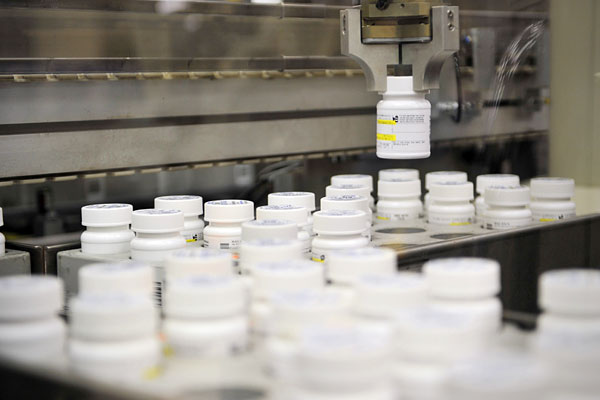Specialists’ opinions on the feasibility of the decision to increase medicine prices are at odds. This discrepancy extends to include the owners of pharmacies and their staff. Despite the price increase lifting the profit margin of pharmacists, their opinions differ wildly on the decision.
The decision includes price increase of various drugs: different types of painkillers, tranquilisers, and medicines for chronic diseases, such as blood pressure, Diabetes, heart diseases, strokes, and cardiovascular diseases among others.
Some companies stopped supplying their pharmaceutical products before the decision was applied in order to acquire the new profit margin, which confirms that they were aware of the decisions before its issuance, says a pharmacist who asked to remain anonymous. As a result, the market suffered from a shortage of many types of medicines.
The pharmacist said that the prices of 2,000 types of medicine have increased in his pharmacy, and that other items are out of stock.
In terms of the profit margin increase influenced by the price increases, the pharmacist does not see any difference in the profits that represent 20% of the product price. He believes that consumers are suffering from a state of confusion due to this decision.
Some pharmacists believe that the increase is unjustified and that unsold should be sold with the old prices written on them. However the decision states that the new prices will be applied immediately, as a result patients are confused and are obviously looking for alternative and cheaper medicines.
Another pharmacist, Mohamed Ammar, said he hopes that the company will fulfil its promise to provide medicine after the price increase, as availability of scarce medicines in the market is paramount.
The pharmacists’ profit margin increases by only 5%, and no more than 1.5% for distributors, while business owners receive 13.5%, said Ammar.
He denied that the sales would be affected by this increase as medicines are basic commodities and their sales will not decline due to the higher prices. Patients will simply have to deal with the new prices.
Ammar said that the decision included types of medicines whose prices should not be increased. In previous years, there have been several decisions to increase the prices of many medicines. Sometimes a single decision would include 100 types of medicine.
This decision included 2,800 types of medicines in his pharmacy, and some of these medicines already had their prices increased in recent years to remain profitable.
Some pharmaceutical companies manipulated the description of their products and changed the classification in order to include them in the list of medicines that would be up for a price increase, a pharmacist said under condition of anonymity.
The companies wrote the prices on tape instead of on the packaging. For example, if the price of a pillbox that has two strips of medicine is EGP 60, the company would write that the price of one strip is EGP 30 to obtain a price increase.
The medicines whose prices were manipulated reached EGP 12 per package. There should be some form of oversight for these products as these significant price increases will cause patients to suffer, said the pharmacist.
Some imported products are absent from the market. According to the pharmacist, domestically-produced medicines were also out of stock before the price increase, such as antibiotics, fertility drugs, and drugs for blood vessels and arteries.
Some medicines are absent because the companies stopped supplying them which means that the prices of these products will increase as well.


